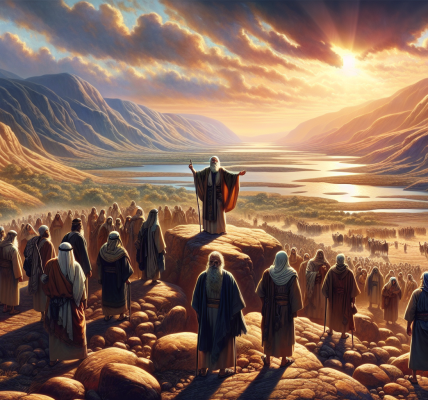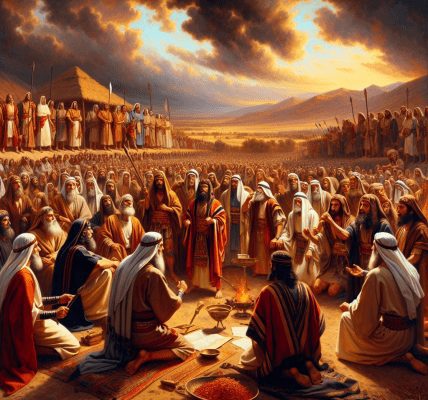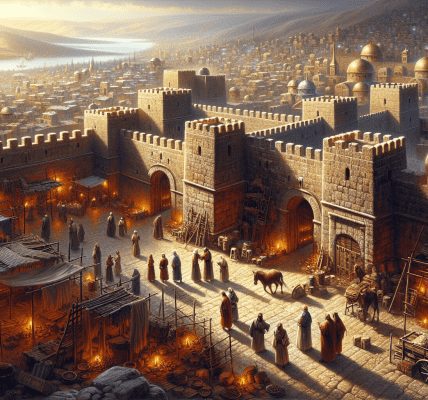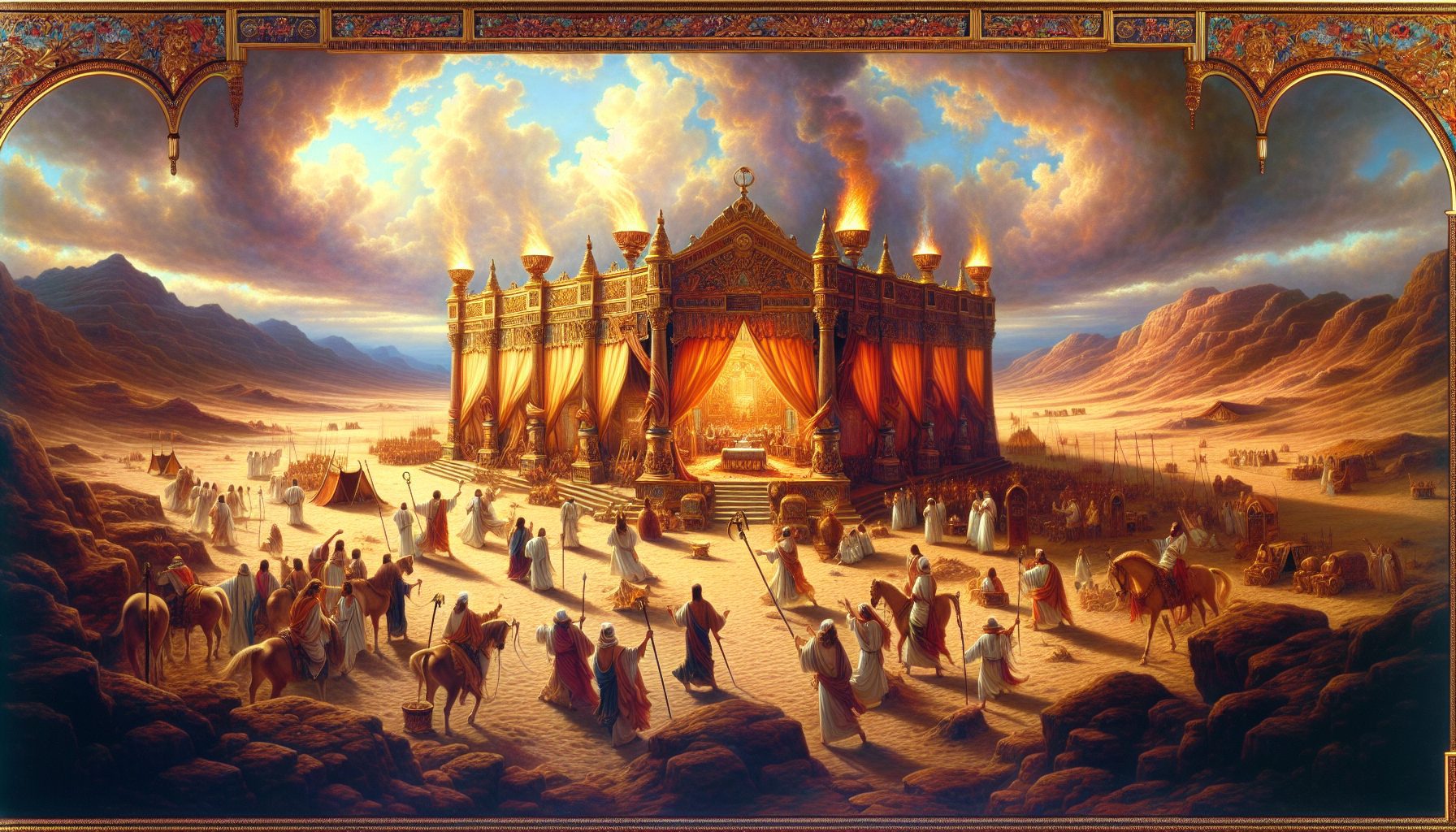**The Inheritance of Ephraim and Manasseh**
The sun hung low over the land of Canaan, casting golden light upon the rolling hills and fertile valleys that stretched as far as the eye could see. The Israelites had crossed the Jordan, conquered Jericho and Ai, and subdued many of the kings who had opposed them. Now, under the leadership of Joshua, the time had come to divide the land among the tribes of Israel as the Lord had promised.
Among the tribes to receive their inheritance were the descendants of Joseph—Ephraim and Manasseh. The Lord had blessed Joseph in Egypt, and now his sons would be blessed with a rich portion in the land flowing with milk and honey.
### **The Borders of Joseph’s Land**
The allotment for the children of Joseph began at the Jordan near Jericho, east of the waters of Jericho, and went up from there into the hill country of Bethel. The boundary then passed through Luz (which is Bethel) and continued to the border of the Archites at Ataroth. From there, it descended westward to the territory of the Japhletites as far as the region of Lower Beth Horon and on to Gezer, ending at the Mediterranean Sea.
This was the land assigned to the descendants of Joseph—both Ephraim and Manasseh—marked by lush fields, dense forests, and strong cities. The soil was rich, perfect for crops and vineyards, a testament to God’s faithfulness in fulfilling His promise to their forefathers.
### **The Cities Within Ephraim’s Portion**
Within this territory lay many cities, some already conquered, others still inhabited by Canaanites who had not yet been driven out. The people of Ephraim received their cities and villages, each one a reminder of God’s provision. Among them were Bethel, a place of sacred memory where Jacob had once dreamed of a ladder reaching to heaven; Gezer, a fortified city that stood as a stronghold in the land; and Shechem, a city nestled between Mount Ebal and Mount Gerizim, where the blessings and curses of the Law had been proclaimed.
Yet, despite the clear command of the Lord to fully possess the land, the Ephraimites did not drive out all the Canaanites who lived among them. Some remained in Gezer, their presence a lingering thorn, a compromise that would one day bring trouble. The Canaanites who stayed became forced laborers, but their gods and their ways would tempt Israel in the days to come.
### **A Land of Promise and Responsibility**
As the families of Ephraim settled into their inheritance, they walked through fields of barley and wheat, drank from cool springs, and rested under the shade of olive trees. The land was good, just as the Lord had said. But with the blessing came a duty—to remain faithful to the God who had given it to them.
Joshua, now old and wise, had warned them: *”Be very strong; be careful to obey all that is written in the Book of the Law of Moses, without turning aside to the right or to the left. Do not associate with these nations that remain among you; do not invoke the names of their gods or swear by them. You must not serve them or bow down to them. But if you turn away and ally yourselves with the survivors of these nations that remain among you, then know for certain that the Lord your God will no longer drive out these nations before you. Instead, they will become snares and traps for you, whips on your backs and thorns in your eyes, until you perish from this good land, which the Lord your God has given you.”*
The people listened, but the test of their faithfulness was yet to come. Would they fully obey the Lord, or would they allow the remnants of Canaan to lead them astray?
For now, the land was theirs—a gift from a faithful God, a fulfillment of ancient promises. And as the sun set over the hills of Ephraim, the people gave thanks, knowing that the Lord had been with them and would remain with them, if only they would walk in His ways.




